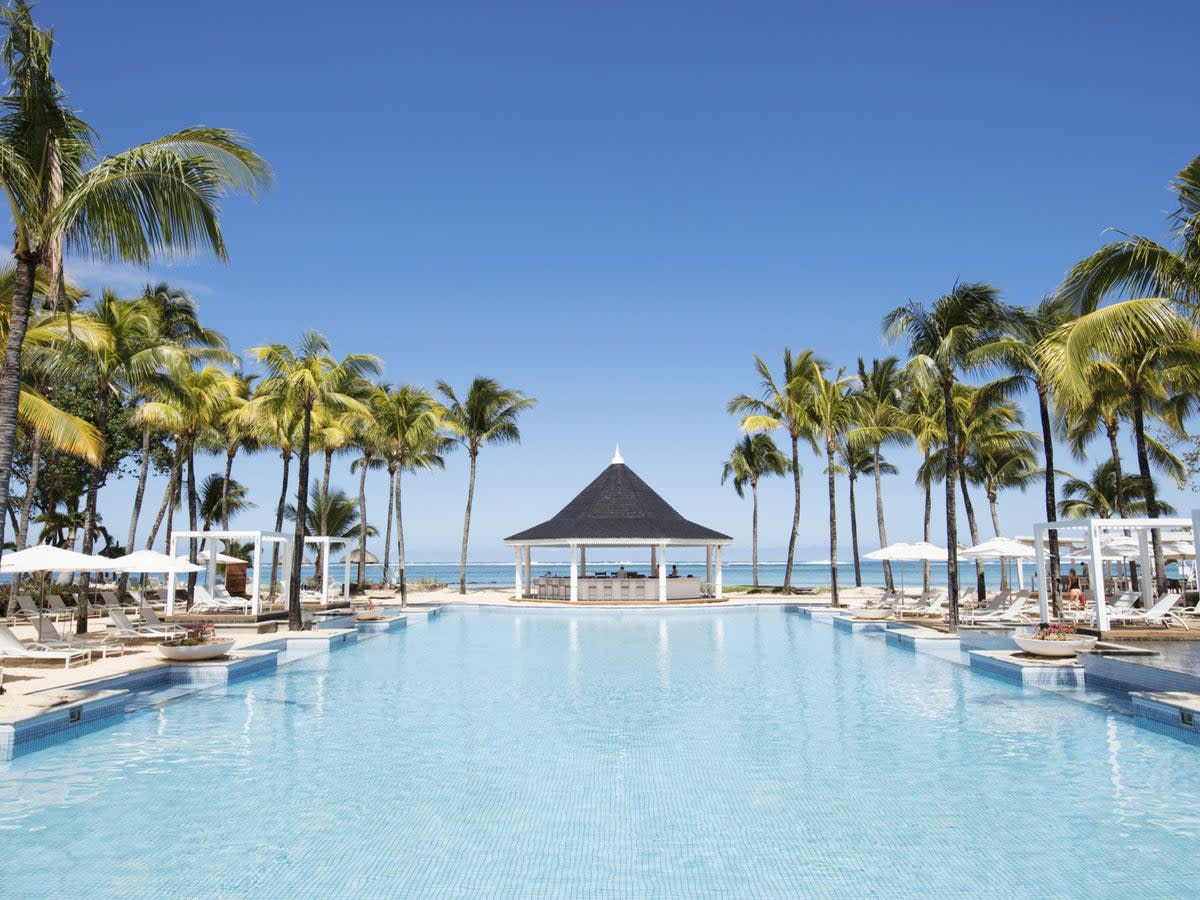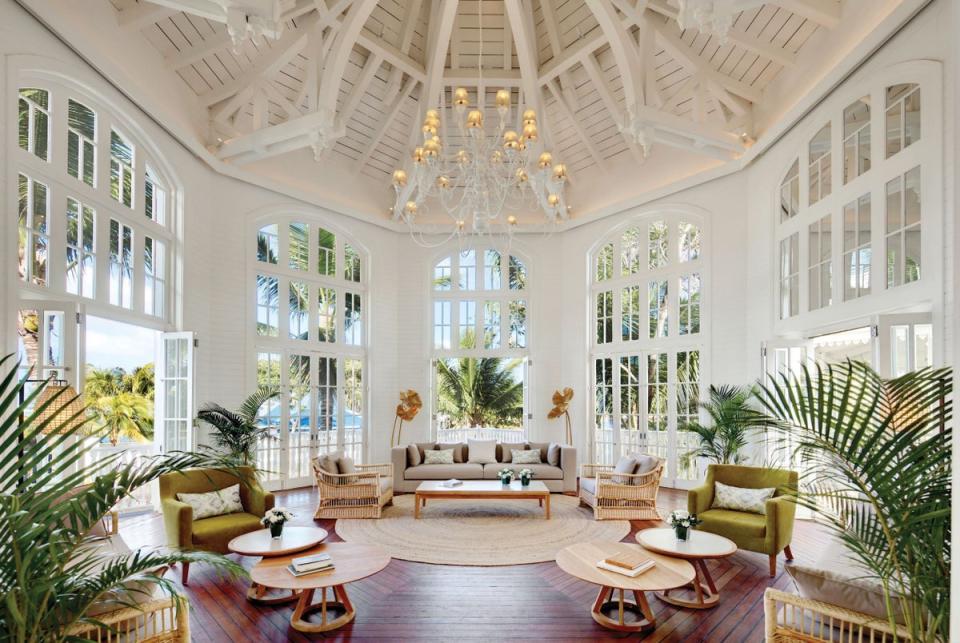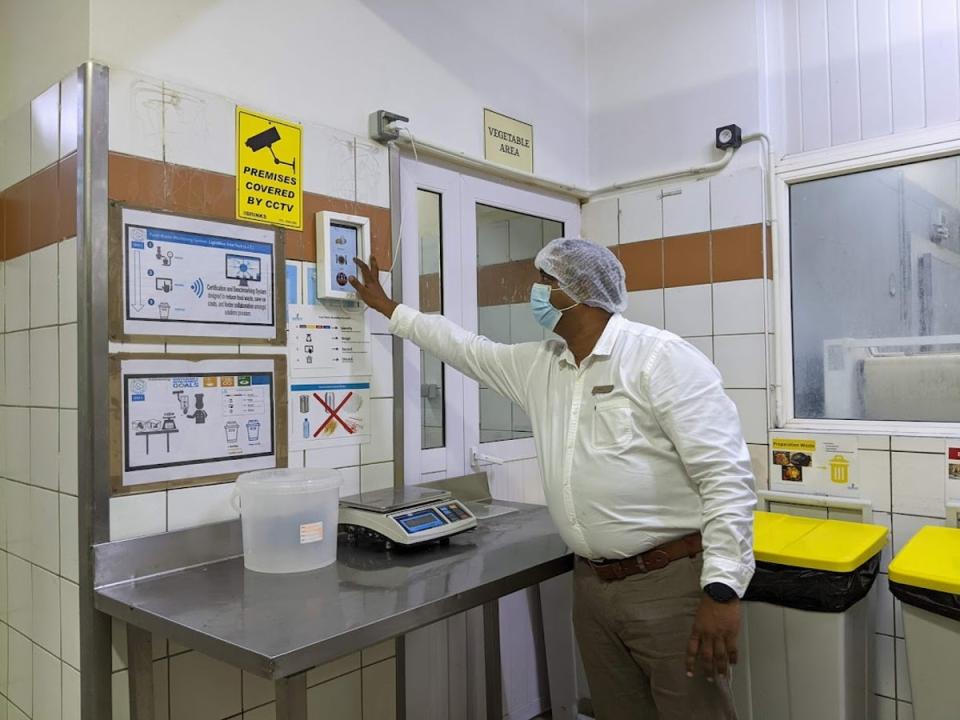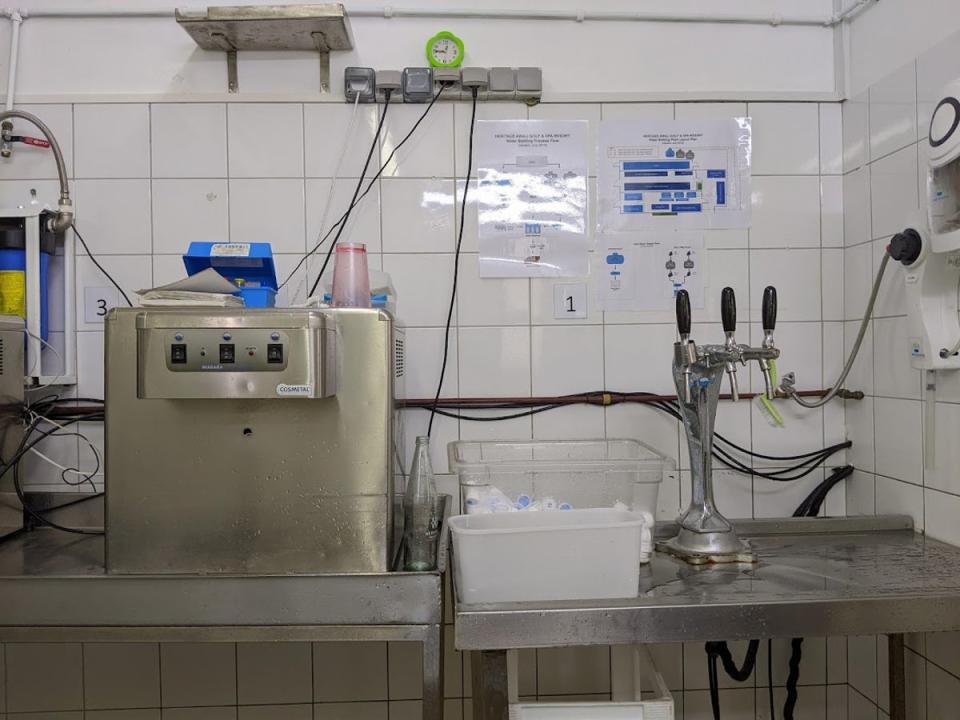Can a long-haul holiday ever be carbon-neutral?

Light-headed, I sink back into the plush cushions lining the rattan bench. My hands alternate between pressing a cool cocktail glass against my cheeks, and tilting its deliciously sour contents down my parched throat. Behind me, the brochure-perfect pool looks ever so inviting.
For a moment, as the heat and humidity hits me, I wonder if I’m really here – here being Mauritius, the Indian Ocean paradise loved by families and honeymooners alike. I try to talk sensibly about sustainability with Julie Daruty, communications executive for Mauritian hotel group VLH, but after an 11-plus hour flight and barely an hour’s sleep, I mainly feel disorientated.
Even in this moment, the irony is not lost on me – I’ve just flown over 6,000 miles to have a conversation about the environment that I could have had over Zoom. But that’s also part of the reason why I’m here.

Heritage Le Telfair, VLH’s flagship property in Bel Ombre in the beautiful, rugged south coast of Mauritius – where I’m wilting under the canopy of a banyan tree – became the first hotel in the country to offer carbon-neutral stays last year, alongside its sister property Heritage Awali. It means that, once guests land and board the hotel’s transfer shuttle, their entire carbon footprint is offset, paving the way for carbon-neutral long haul holidays that require very little effort from the travellers themselves.
To be clear, VLH is not the first to do this – plenty of travel companies have been doing it for longer. The tour operator Intrepid, for example, has been carbon-neutral since 2010, partly by investing in renewable energy projects to offset its emissions. All of its trips, including flights, are already offset, making sustainable travel readily accessible for its customers.
VLH, while not a global leader, is leading the way in Mauritius. Banning plastic straws and single-use plastic and encouraging guests to recycle is de rigueur these days. So is the concerted effort to change the way guests experience a destination – jetskis and speedboats have been replaced by bikes and other low-impact activities, for example. But much of the action actually happens behind the scenes – and that’s what I’ve come to see.
Glass bottles are cleaned and reused time and time again, eliminating the air miles associated with imported water and plastic bottles in one fell swoop
Daruty hands me over to Heritage Awali’s executive chef, Ravi Kanhye, who takes me to the resort’s crowning achievement: its onsite water processing plant.
Hidden behind lush greenery, the single-floor building is a little underwhelming compared to the plantation-style architecture that guests normally see. Here, up to 1,000 bottles of filtered still and sparkling water are produced each day. The glass bottles are cleaned and reused time and time again, eliminating the air miles associated with imported water and plastic bottles in one fell swoop. In fact, the resort estimates it has saved 30 tons of single-use plastic since 2019 thanks to this plant.
Kanhye is also spearheading a food waste reduction project. Everything from leftovers to vegetable peels is sorted, categorised, and weighed so the results can be measured against ever-tightening targets. Where possible, waste is recycled or reused – citrus peel is used to make natural cleaning fluids, for example.

Even less visible – unless you look at the charts of course – is the resort’s increasing reliance on renewable energy as well as overall reduction in energy consumption. Water conservation is also on the agenda, with wastewater used for keeping the resort lush and green. There's extensive staff training, because awareness is what’s facilitating change at every level, not to mention the numerous other initiatives under VLH’s Now For Tomorrow pledge.
Why do these initiatives matter? Well, because these are the changes that will actually make a difference.
“Our carbon-neutrality project is not only about offsetting our emissions,” says Pooja Etwah, VLH’s sustainable development coordinator, who has taken over the next part of my behind-the-scenes tour. “Firstly, there’s the data collection part, so we know where we stand with our carbon footprint.”
Our carbon-neutrality project is not only about offsetting our emissions
Pooja Etwah
Carbon footprints are actually mind-bogglingly difficult to work out. One method is to divide greenhouse gases (GHGs) emissions into Scopes 1, 2 and 3.
Scope 1 includes all the emissions produced onsite, like the electric cars used to shuttle staff and guests. Scope 2 covers indirect emissions, such as electricity, that the hotel buys in. Scope 3 is everything else. The latter is notoriously difficult to calculate; when you trace the emissions of a single item, say a piece of cheese, you’ll need to account for everything in the production process. And you’ll soon realise how interconnected everything is.
Like most businesses, VLH focuses on Scopes 1 and 2, as they have “better control” over these.
“Based on the amount of emissions, we have programmes and initiatives in place to reduce these,” Etwah says. “And whatever we cannot reduce ourselves at the resorts, this is the part we use carbon offsetting projects for.”

As one of 11 people on a team that was only established in 2018, Etwah concedes there’s still a lot to do, but some of it simply isn’t possible right now. Renewable energy sources within Mauritius are still limited, and growth in the area is hindered by the country’s slow-changing regulations. So for VLH’s sustainability team, a lot of their work actually involves campaigning as stakeholders.
There’s also the fact that each hotel in the group’s portfolio caters to different types of guests and has different managers, meaning the overall strategy needs to be implemented slightly differently. Heritage’s sister brand Veranda, for example, is focusing more on getting guests to go out to meet the community for now. That means food tours with locals, guided hikes on routes that only Mauritians know and yoga on the beach with an instructor who spent years teaching on the same stretch of coastline.
It’s all quite idyllic when you think about it. Guests get to holiday in paradise knowing that their impact has been minimal – maybe even positive. But there’s just the little problem of flights: Mauritius is more than 1,000 miles from the African mainland and, given most of its tourists are European, the emissions are substantial.

I struggle to think of a solution that doesn’t include the lazy route of carbon offsetting (a notoriously contentious option) to make that long-haul holiday a carbon-neutral reality. But, having met the passionate team at VLH, and knowing there are similar projects around the world, perhaps I won’t have to wait long for a truly carbon-neutral holiday.
Travel essentials
Getting there
Trying to fly less?
There isn’t currently a route to reach Mauritius flight-free from the UK.
Fine with flying?
Air Mauritius flies direct to Mauritius from the UK up to five times a week.
Staying there
Deluxe seaview suites at Heritage Le Telfair from £236, room only.
More information
Find out more about the Now For Tomorrow project: nowfortomorrow.mu

 Yahoo News
Yahoo News 
